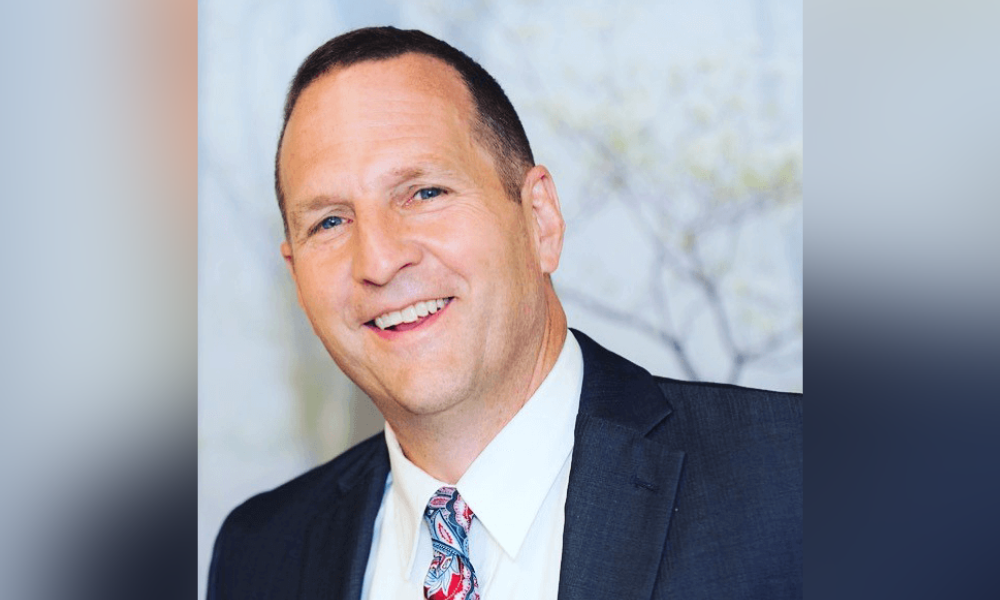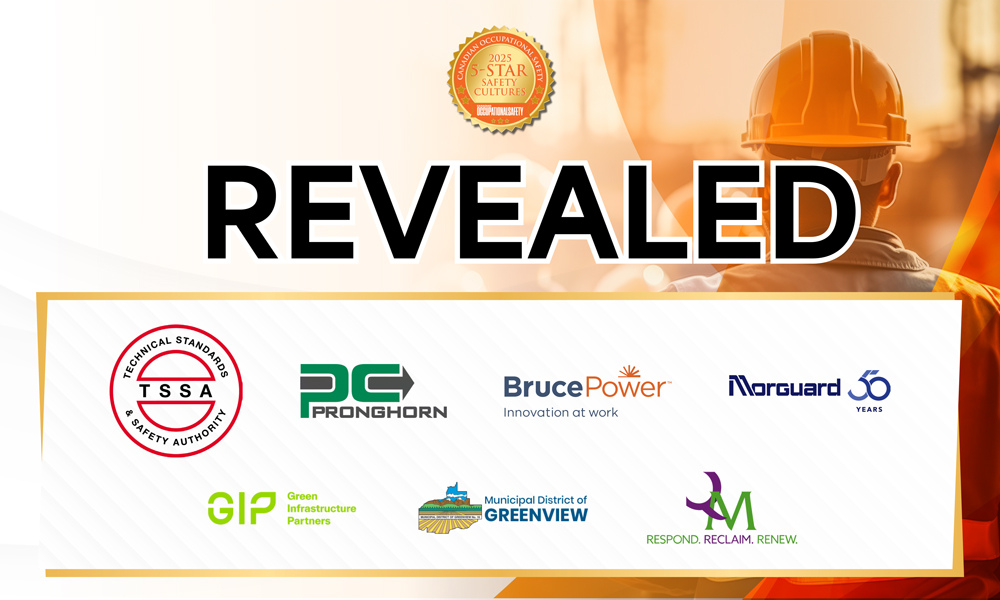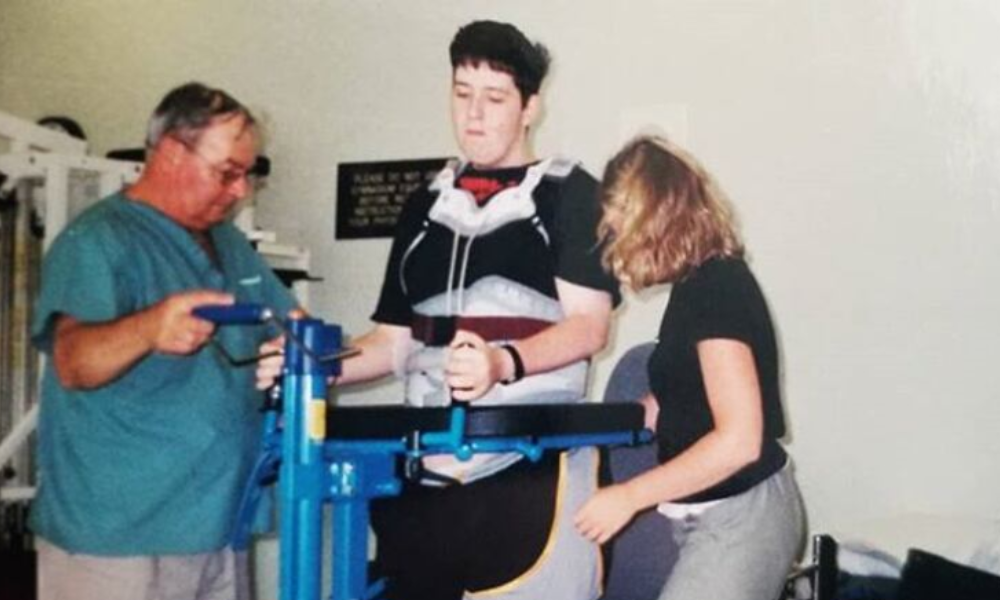'For better or for worse, addiction has defined my life,' says mental health expert

How can we penetrate and get to those folks who are struggling and aren’t speaking up?”
This question is at the crux of Rich Jones’ advocacy.
Jones is a licensed therapist and psychologist. He also has a personal understanding of those suffering from substance abuse, having been in recovery from opioid abuse for decades.
Initially, Jones had conceived of a career in business management.
In his early career, Jones admits that he was a high-functioning alcoholic. Then he got into a car accident and was prescribed pain medication which he became addicted to for about two years.
In 2002, he got into recovery and it became clear that he couldn’t continue doing the type of work that he had been doing.
“I went back to school to build up the credentials and certifications to work in the field,” says Jones.
He then worked community mental health, helped started various rehabilitation clinics and has a private practice.
His passion for mental health eventually led him to want to bring his services closer to individuals.
“I believe that we should be delivering services in the home,” says Jones. “That led me be part of a non-profit in South Carolina called Faces and Voices of Recovery which is where we started working on the peer model.”
Eventually, Jones wanted to widen his audience, which led him to becoming part of Heritage CARES about a year and a half ago. Jones is the company’s Executive Director.
Peer support
Heritage CARES is a digitally enhanced recovery program which is designed to help workers struggling with mental health and addiction issues.
The program offers a virtual support program, which can be offered to employees alongside existing Employee Assistance Programs (EAPs).
The solution notably offers two services, Youturn and a peer support program.
Jones describes it as a “digitally enhanced peer support coaching model,” and a “a whole new way of reaching out to people, and reaching out to people with substance use and mental health concerns.”
Youturn is a database, an educational package, which can be used as a way to educate employers and mental health issues.
For those with serious issues, the program offers peer coaching by certified professionals.
“Most people manage with the educational videos, but if you need a peer, we’re able to connect you to our peers,” says Jones.
New problems
So how can tech improve mental health care, at home and within the workplace?
“Tech makes it incredibly easy and convenient, you can access it on your terms,” says Jones. “When you use it correctly, it can break through some of the denials that exist.”
Because, says Jones, one of the biggest issues that arises when trying to deliver mental health and addiction services is that those suffering are often not willing to step forward.
“We’re in this situation where we still rely on a person to raise their hand and ask for help, but the overwhelming majority of people out there don’t do that,” says Jones. “When you’re in the middle of addiction, you have no idea you’re in the middle of addiction.”
And that last point is of huge concern, because there has been an increased risk of substance use during the pandemic and certainly more broadly and increase in mental health issues.
It has exacerbated issues for those already suffering, and created new problems:
“The pandemic has brought all these people into the fold that need help, that before were sort of on the fence,” says Jones. “It has created the need to have a different sort of conversation.”
And not only is the broader workforce suffering, but mental health professionals are also reeling:
“I’ve been doing this work for a long-time, those of us doing this work feel like we’re in the middle of a war zone right now,” says Jones.
More than lip service
It is important for workplaces to equip workers with the right tools, because workplaces can negatively impact health.
Firstly, there are some employers that may ignore mental health and addiction issues and pretend as if nothing is going on, says Jones.
“The second way is just putting lip service on it,” says Jones, “you’ve got to put your money where your mouth is.”
This means investing in an adequate mental health offering, but also encouraging workers to access those services which are already available such as EAP programs and therapy.
And digital solutions, which can be a offered alongside these traditional offerings. And because employees may be weary of going through their employer to ask for mental health or addiction help, personal apps could help open a necessary conversation.
Employers need to improve their mental health care.
“We’ve got to bring mental health care to the people, make mental health and substance abuse awareness mandatory training,” says Jones.
Echo pandemic
Leadership plays a huge part in opening mental health and addiction conversations in the workplace.
“Leaders need to lead the way in being open with their mental health struggles to make it ok for other people at the company to talk about it,” says Jones.
“I talk openly about being in recovery in my company,” he says. “For better or for worse [addiction] has defined my life.”
And this is not just a conversation that needs to happen now, it is something that needs to be constant – especially because, Jones says, we have yet to experience to full extent of the mental health issues caused by the pandemic.
“I don’t think we’ve even begun to see the fall out from the pandemic,” says Jones.
You can only really experience the full extent of Post Traumatic Stress Disorder (PTSD) until the event is over.
Says Jones: “We’re really not going see a lot of the mental health fallout until the pandemic ends.”
More information can be found on the company’s website: https://heritagehealthsolutions.com/heritage-cares/





